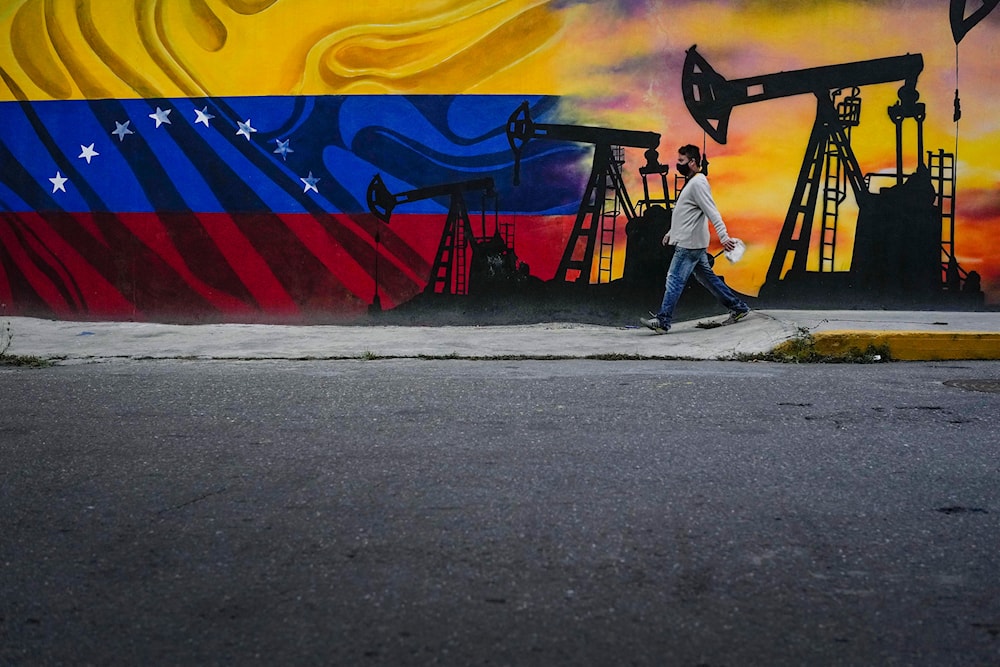Venezuela exports gas for the first time to Trinidad, Tobago
The natural gas project, a collaboration between Shell and Trinidad and Tobago's state firm National Gas Company (NGCTT.UL), is poised to achieve its first output within the next two years.
-

A man walks past a mural featuring oil pumps and wells in Caracas, Venezuela, Saturday, May 21, 2022. (AP)
PDVSA, the state oil company of Venezuela, has entered into an investment agreement with Trinidad and Tobago, obtaining a license to export gas from the Dragon field situated off the coast of Sucre state.
This marks Venezuela's inaugural venture into gas exports, with transactions conducted in collaboration with the national gas company, NGC, in Trinidad and Tobago.
According to the Venezuelan National Oil Company, the license issued to Shell and the National Gas Company of Trinidad and Tobago provides these entities with the authorization to produce natural gas for 30 years.
Last Thursday, Venezuela, Shell, and NGC formalized the license agreement for the Dragon project in Caracas. This landmark deal signifies a potential breakthrough for the OPEC member country, marking its potential inaugural exports of extensive offshore gas reserves.
La vicepresidenta ejecutiva Delcy Rodríguez encabezó el acto de entrega de la primera licencia para la extracción, producción y exportación de gas en “Campo Dragón” en asociación con la estatal National Gas Company (NGC) de Trinidad y Tobago y la empresa neerlandesa Shell. pic.twitter.com/mUYFBZs7y3
— PDVSA (@PDVSA) December 22, 2023
The license for the Dragon project was formally signed by Trinidad's Energy Minister, Stuart Young, and Venezuelan Oil Minister, Pedro Telechia.
According to PDVSA's statement, the license outlines the commencement of production with an initial output of 185 million cubic feet per day of gas. This gas will be directed to Trinidad for the manufacturing of liquefied natural gas and petrochemicals.
Dragon, along with three nearby offshore gas fields, was initially discovered by PDVSA and officially designated as reserves over a decade ago.
Read next: Venezuela boosts oil production amid unilateral restrictive measures
Additionally, the company undertook the installation of infrastructure, carried out production tests, and initiated the construction of a gas pipeline extending to the coast of Venezuela.
Unfortunately, the commercial development of the project faced impediments, primarily attributable to a dearth of partners and investments. More recently, the project has encountered further challenges due to sanctions imposed by the United States.
Venezuela is actively seeking to capitalize on its extensive gas reserves, the largest in Latin America, as a strategic move to augment its revenue streams. This effort aims to complement the income generated from crude oil and fuel exports, which currently stand as the country's primary source of hard currency.
In a noteworthy development last October, Washington partially lifted sanctions on Venezuela, granting a six-month license to the Venezuelan national oil company. This license enables the company to freely export crude oil and gas to markets of its choosing, facilitating foreign investments and cash revenues.

 3 Min Read
3 Min Read








